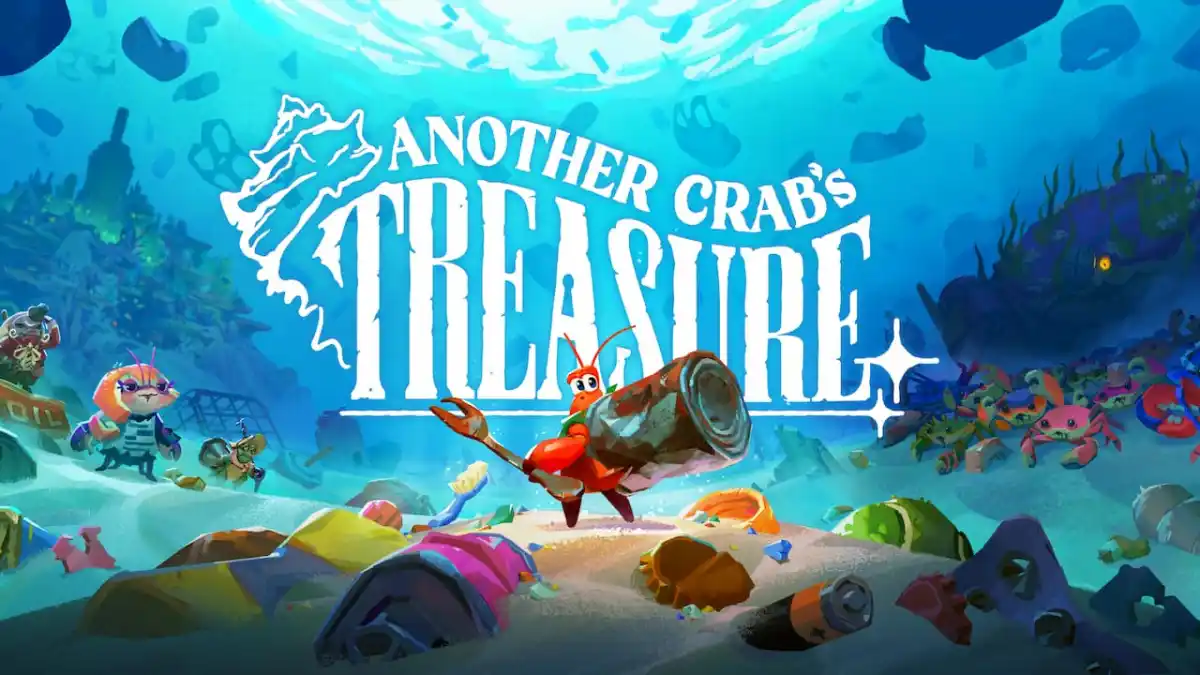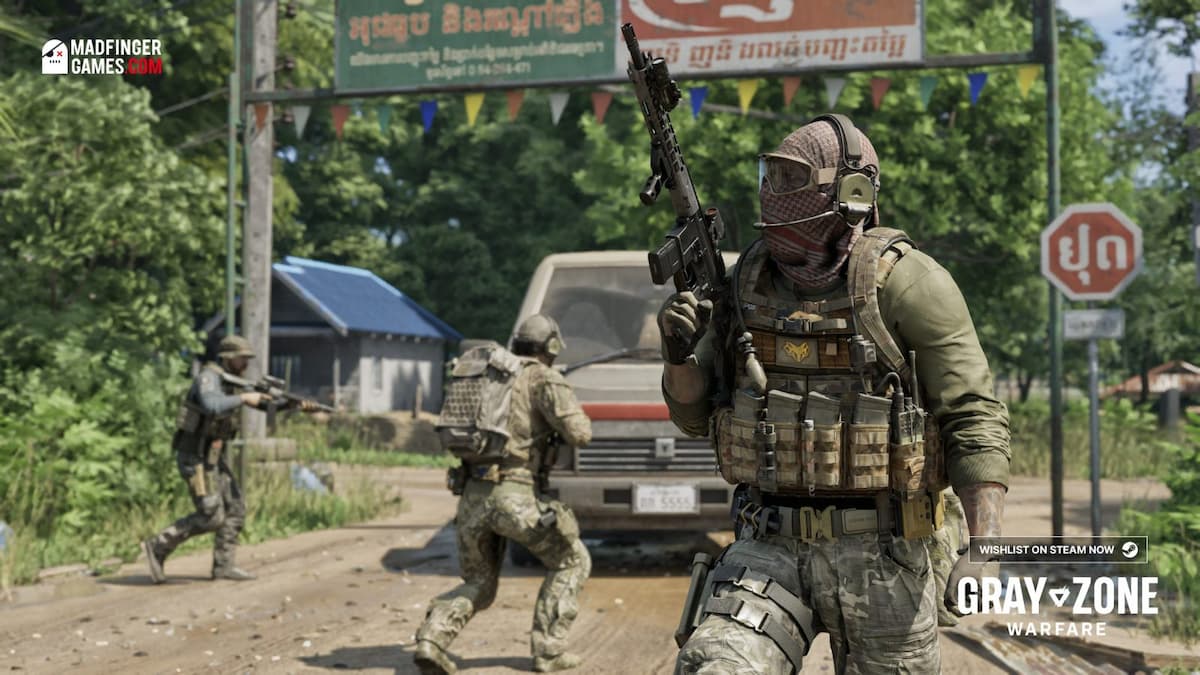
Seven years ago, “nonlinear” was a word that, in the video game world, meant next to nothing. Free-roaming gameplay? Branching storylines? Isn’t that what old-school adventure games did? Ten years ago, it didn’t really matter whether or not a mainstream game allowed players to manufacture their own gameplay experience: implementing nonlinear gameplay was either too risky or too difficult from a technological standpoint.
But since the release of Grand Theft Auto III and all of its copycats, and thanks to today’s rapidly-improving technology, the word has become more important than ever before. Developers can now create incredibly rich, deep, and detailed worlds—worlds which gamers are now beginning to expect.
Which, of course, brings to mind several questions.
Is the general trend of linear games becoming nonlinear ones a good one? Should we be so happy that meticulously-crafted gameplay experiences are losing ground to free-roaming sandboxes? Or is this trend something bigger than a simple change of pace for the industry? Could nonlinear games be the next step in the evolution of video games?
Hell if I know for sure, but damn if this article won’t try to find out. Hit the jump for a detailed analysis of The Linearity Question. (Warning: lots of words ahead.)
What is “nonlinear?”

When one thinks “nonlinear,” it’s impossible not to consider the Grand Theft Auto series. By now, everyone is familiar with the formula: you’re given a big-ass world to explore which is set up with certain physical rules (cars only explode after they’ve taken a lot of damage, weapon fire is handled by a targeting system, etc), and you’re let loose in it.
You can either run around and kill people for no reason, or you can complete missions the game has assigned you in order to advance the linear storyline.
Again, this is a pretty standard setup, and one we’re all familiar with. With certain tweaks (e.g., a branching storyline in True Crime: Streets of LA or an economics system in Scarface), this type of game typifies the most common sort of “nonlinear” game: a free-roaming world with an optional linear storyline.
The other type of nonlinear game, which we as gamers have had an equal amount of contact with (albeit spread out over the last few decades) is the nonlinear RPG. Baldur’s Gate, Fallout, Vampire: The Masquerade, Knights of the Old Republic, Deus Ex, Elder Scrolls, and many others. These games allow us to generally follow a linear, goal based storyline, but in a completely nonlinear way. You can talk your way past a battle, sneak past enemies, bribe other characters to do your fighting for you…if the GTA games and their ilk are nonlinear in regards to how one commits violence, these nonlinear RPGs are nonlinear in literally every other respect.

Or are they? While one can hypothetically do any of the aforementioned actions to successfully navigate a sticky situation, these actions are usually restricted by the player’s numerical stats – if your persuasion skill isn’t high enough, it looks like you’re gonna have to fight your way past the guard. And even IF your stats are high enough, the methods of persuasion (usually done through a dialogue tree) have all been written by developers, who know exactly how many ways the conversation can go, and have programmed exact, specific ends for each possibility. In this sense, these types of RPGs achieve a kind of quasi-nonlinearity: while it may seem like you have unlimited possibilities within the rules of the game world, all of your potential actions have been thoughtfully planned out by the developers.
In this sense, no truly nonlinear game exists today: in the case of GTA-esque games, you simply have a larger stadium in which to find varied ways to kill people (while still ostensibly following a completely linear plot), and in nonlinear RPGs you are given the illusion of freedom while mostly adhering to a meticulous developer plan.
That being said, when you tell your friends a story about something you did in a nonlinear game, there’s a good chance they’ll be impressed with the time you stacked eighteen cars against each other and threw a Molotov cocktail, or the time you robbed a merchant’s store and then sold everything back to him: working within the restrictions of a rule-based world can make for some spectacular stories.
What is “linear?”

While I figured it’d be worth asking this just for clarification, it’d probably be damn near impossible for any of us not to know what linear gameplay feels like at this point. With the exception of the above nonlinear titles, literally every video game that comes out on a yearly basis is linear.
Linear games have only one storyline, only a few different ways to get through a level, and basically result in the same experience for every player. When you tell your friends stories about a cool part of a linear game, it essentially amounts to describing a great scene in a movie they haven’t watched: what you’ve told them may be fantastic and cool, but they’ll see exactly the same thing if they play the game for themselves.
The Pros and Cons of each

Let’s look at Crackdown. Initial reviews (which coincide with my personal opinion) lauded the game for the amount of freedom it gave the player, but mentioned that without a cohesive story tying everything together other than “go kill these 21 bad guys,” the game felt unfinished. Was it fun? Did it have fantastic replay value? Of course. But it still feels like something is missing (especially since you never come face to face with any villain whose power is even remotely comparable to yours).
And there are few things less fun than an overly-linear game: the game essentially eviscerates itself, defeating its purpose for existing. Ask anybody who played the Batman Begins video game, where you’re only allowed to use the batarang at certain points, and are essentially led through each level by your nose.
While nonlinear gameplay at its worst is nearly always better than linear gameplay at its worst, it’s harder to say if one of the two styles is necessarily “better.”
Nonlinear:
+Player determines his or her own method of playing
+Freedom is good
+Fewer constraints means more “true” interactivity
-Less focus on story, as the story must be limited to the specific constraints of the game world (for instance: every Grand Theft Auto storyline is, by design, required to involve gang violence and end in a massive shootout)
-Harder for developers to do, which can result in important gameplay aspects being overlooked (True Crime: New York)
Linear:
+More meticulously crafted stories
+Gameplay specifically tailored to give player maximum amount of enjoyment
+Gameplay is more focused
+Easier for developers
-Lacks replay value
-Player has no input in storyline or gameplay style
-Who gives a shit about what’s easier for developers?
Viewed simply in these terms, it’s difficult to discern which is best. Ask most gamers, however, and you’d likely hear that nonlinear games are generally much better. This is because (A) nonlinear games, both by definition and in regards to their future possibilities, have infinite potential and (B) linear games almost never reach their full potential.
While those precious few games like Undying, Call of Cthulhu, and Half-Life use linearity to their advantage (namely, to create some truly stunning setpieces and develop complex, artistic stories), most linear games don’t really nail the formula. Developers either implement only a few gameplay ideas, big-ass levels, and no story in an effort to convince themselves their game is nonlinear, or they don’t even try very hard.

But what of the hybrids which have become so popular recently? Even some of the best linear games implement at least partially nonlinear ideas within their structures. Take Gears of War: many levels are completely linear, while others are wide open, allowing you to traverse a large map in an effort to flank your opponents. Or what about the dozens of otherwise-linear games with alternate endings, like The Suffering or The Getaway? What about Hitman or Splinter Cell, which have linear missions structures but allow the player to complete a mission in any way they want? While these games are seldom heralded for their (albeit, sometimes minor) marriages of the linear and nonlinear aspects of gaming, they do represent a general developer shift from linear to nonlinear gameplay.
Is “emergent gameplay” the future?
In terms of future implementation of nonlinearity, we currently have two games to look forward to (I was gonna say three, but evidently Alan Wake is gonna be a lot more linear than I originally thought): Assassin’s Creed, and Bioshock. Both games strive to take nonlinearity to a new level through innovation, not escalation: the game worlds won’t be any bigger than San Andreas, and you won’t have more superhuman abilities than you had in Crackdown. These games are fighting smarter, not harder.

Assassin’s Creed will hypothetically allow the player to use the entire map as a playground: every structural detail that juts out more than a few centimeters becomes a stepping stone, and as a result every level becomes a freerunner’s wet dream. While the game will still ostensibly consist of a linear mission structure (Kristen “I have the body of a 20 year old and the eyes of a preteen”

Bioshock looks to be Deus Ex times eight thousand: while little is known about how the storyline will progress (pretty much everyone knows the general scenario right now, but little has been divulged as to whether the story will be linearly delivered to the player or naturally discovered as the player finds clues), the player will be able to utilize the rules of the game world in order to turn situations to his advantage, instead of just having to shoot everything or sneak past everything or hack everything. The player will be able to use the environment and the AI against each other: kidnapping a Little Sister to get a Big Daddy to chase you and take out a Mutated Citizen, for instance. The AI and the environment has been set up in such a way that the gameplay literally “emerges” from the player’s ability (or lack thereof) to manipulate the given rules of that environment. Assuming Irrational Games hasn’t been lying to us the entire time, anyway.
So, depending on how well these nonlinear aspects are implemented into these games, and how well they sell, could emergent gameplay be the future? Could emergent gameplay be that elusive criteria by which we distinguish the next-gen from the old?
There’s obviously no way to know for sure at this point, but I personally argue in favor of this view. As games have gotten more technologically advanced, we’ve seen a greater trend toward nonlinear, sandbox games. With this upward trend, we’ve seen the problems in making a game too nonlinear, and we’ve seen what can happen when you focus too much on creating a nonlinear world and forget a compelling story, or fundamentally necessary gameplay mechanics. Emergent gameplay, by definition, could be the answer to these problems: it takes the best parts of the nonlinear experience and can hypothetically utilize everything great about linear video games.

And quite frankly, that could be the answer to the Linearity Question: emergent gameplay, if it catches on, could represent the future of video gaming. Players will be able to enjoy finely crafted stories whilst defining their own method of gameplay; players will have the freedom to do what they want, but will still be able to bear witness to meticulously designed setpieces.
Of course, there will always be completely linear games, and, if Spore is any indicator, there will always be completely nonlinear ones as well. What is important is that, for the first time in gaming history, these two different types of gameplay are finally combining, and we’re getting to see some new gameplay possibilities that were thought to be things of futuristic sci-fi.
There’s never been a better time to be a gamer.



